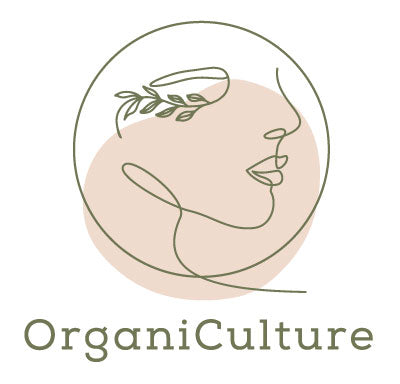Your Cart is Empty
Get up to 25% off, Shop Today. Free AU Shipping over $150
Get up to 25% off, Shop Today. Free AU Shipping over $150
Makeup
SKINCARE
Add description, images, menus and links to your mega menu
A column with no settings can be used as a spacer
Link to your collections, sales and even external links
Add up to five columns
Add description, images, menus and links to your mega menu
A column with no settings can be used as a spacer
Link to your collections, sales and even external links
Add up to five columns

Why switch to Organic and Natural Skincare?
March 12, 2021 3 min read

I don't want to sound alarmist, but you are at risk!
For decades, well-known, global skincare brands have made us believe that we need to use their products if we want ageless-looking skin, or to fight skin concerns like dryness, oiliness, acne, and more — and we simply did.
We took them at their word, and our bathrooms are filled with their products in the hope that they’ll give perfect skin. We trust those brands to provide us with the best formulation possible for our concerns.
But let's be honest! Many of us have never read the ingredients lists, and even if we have, we don’t understand what any of them are. We believe that those ingredients are safe, regulated and tested for efficacy.
Unfortunately, that’s not true. Many of those ingredients are not safe. The cosmetics industry is very unregulated. Regulatory authorities only check for colour additives, and regulated and illegal drugs — allowing large corporations to freely use any ingredients they like without government evaluation or approval. Here in Australia, the TGA does not review any cosmetic product unless it is advertised with a therapeutic claim.
Almost all these well-known skincare companies use a mix of synthetic chemicals, fragrances, preservatives, and heavy and dangerous metals which have been scientifically proven to be endocrine disruptors, carcinogens, skin irritants and cause other harmful effects without any restriction. For instance in 2018, EGW (Environmental Working Group) scientists found Teflon and PFAs (yes, the nonstick cookware chemical) in 28 brands among 200 makeup, shampoo, shaving cream and other household products.

Those synthetic ingredients found in non-organic products may produce an instant visible result and seem safe in the short term, but prolonged use can lead to negative health impacts. Imagine this: you are reducing your calorie intake to lose weight and you have to choose between eating a bowl of veggies (34cal) or drinking a soft drink with no calories (0 Cal). While the soft drink will "help" you with your target of reduced calories, it has negative longer-term effects through its lack of nutritional value. The same happens with the products we put on our skin.
Nasties: More risky when they are on our skin.
Using some of the aforementioned chemicals on our skin is worse than ingesting them. The enzymes in our saliva and stomach help to break down these compounds and flush them out of our bodies. However, when those chemicals are applied to our skin, a significant proportion of them are absorbed straight into our bloodstream and go directly to our organs.
Organic and natural products, on the other hand, are derived from plants and other natural sources — grown without the use of pesticides, herbicides, synthetic fertilizers, genetically modified organisms (GMOs), and other additives or chemicals, making them completely safe to be used on our skins.
Organic is (by far) more efficient

Moreover, organic skincare products are more effective than synthetic products due to the concentration of active ingredients. Organic products are made of naturally-derived ingredients, leading to high actives concentrations of up to 95%*, while in synthetic products active ingredients typically make up between 5% to 10%. The remaining proportion of the formula is just water! (A creamy formula contains 60-85% water, a lotion up to 90%, and shower gel or shampoos up to 95%).
At the first glance, organic skincare could seem to be more expensive, but you are ensuring you buy a highly concentrated product, not just water with synthetic chemicals and fillers. Organic skincare will benefit your skin and yourself in both the short and long run.
We need to stop blindly believing in big skincare corporations and their synthetic products and switch to natural and organic ingredients that have been used for centuries in many cultures, and that have been proven to be incredibly beneficial to our skin and health
Leave a comment
Subscribe
Sign up to get the latest on sales, new releases and more …
